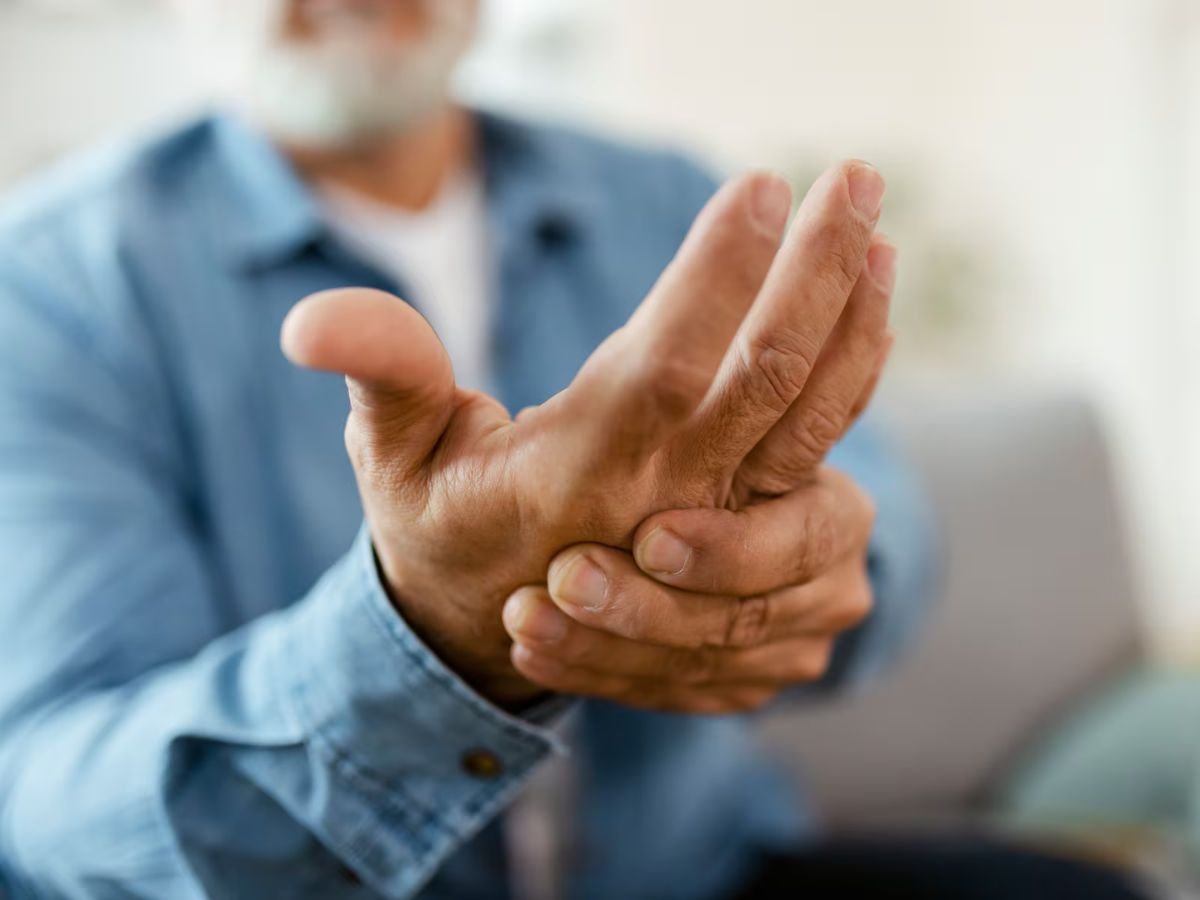New Delhi, 10 October, 2025: Each year, World Arthritis Day is observed on October 12 to raise awareness about the growing burden of arthritis and its impact on daily life. For a long time, arthritis has been considered a condition that primarily affects older adults. However, doctors are increasingly warning that this painful and disabling disease is no longer limited to the elderly — it’s striking younger people too, often without early warning signs.
Arthritis is one of the leading causes of disability worldwide, affecting millions of people. The belief that joint pain and stiffness are just part of “getting old” is outdated. Today, arthritis can affect individuals in their 20s, 30s, and 40s, and lifestyle factors, genetics, and chronic inflammation are contributing to this silent health crisis.
What Is Arthritis?
Arthritis is not a single disease but a broad term that refers to inflammation of the joints. There are more than 100 types of arthritis, but the two most common forms are:
- osteoarthritis (OA) – a degenerative joint disease that occurs when the cartilage between bones wears down, causing pain, stiffness, and reduced mobility.
- rheumatoid arthritis (RA) – an autoimmune condition where the immune system attacks the joints, leading to swelling, inflammation, and long-term joint damage.
Other forms include psoriatic arthritis, gout, and juvenile arthritis, which affects children and adolescents.
Arthritis in the Young: A Growing Concern
Traditionally, arthritis was associated with aging because joint wear and tear occur naturally over time. But experts are now seeing a worrying increase in early-onset arthritis in younger populations.
Factors contributing to this trend include:
- Sedentary lifestyle: Prolonged sitting, lack of movement, and minimal exercise weaken muscles and joints.
- Obesity: Excess body weight increases pressure on the knees and hips, accelerating cartilage damage.
- Sports injuries: High-impact activities or untreated injuries can lead to early joint degeneration.
- Genetics and autoimmune factors: RA and some other forms can develop early due to immune dysfunction.
- Poor posture and screen time: Young professionals working long hours on computers or mobile devices are prone to chronic stiffness and joint strain.
According to experts, arthritis can start showing subtle signs like morning stiffness, mild pain, or swelling, which are often ignored or mistaken for temporary muscle fatigue.
Early Signs of Arthritis You Shouldn’t Ignore
Catching arthritis early can make a big difference in managing the disease. Here are some common symptoms that can appear at any age:
- Persistent joint pain that doesn’t improve with rest.
- Stiffness in the morning lasting more than 30 minutes.
- Swelling or warmth in one or more joints.
- Difficulty in performing daily tasks like climbing stairs, gripping objects, or walking long distances.
- A cracking or grinding sound in the joints.
Many young people dismiss these symptoms as minor discomfort or signs of stress. But ignoring them can lead to irreversible joint damage.
Risk Factors That Can Trigger Arthritis Earlier
- Obesity and Poor Diet
Carrying excess weight puts stress on weight-bearing joints such as the knees and hips. A diet rich in processed foods and sugar can also trigger inflammation, making symptoms worse. - Injury and Overuse
Injuries from sports, workouts, or accidents can damage the cartilage. Without proper rehabilitation, this can speed up joint degeneration. - Autoimmune Conditions
In autoimmune arthritis like RA, the immune system attacks healthy tissue. This can begin at any age, even in the 20s. - Genetic Predisposition
If arthritis runs in your family, your risk may be higher regardless of lifestyle. - Hormonal Changes
Women, especially after childbirth or approaching menopause, are at higher risk due to hormonal fluctuations. - Occupational Hazards
Jobs involving repetitive movements, heavy lifting, or prolonged standing increase the likelihood of early joint wear and tear.
Why Early Diagnosis Matters
Unlike many other conditions, arthritis cannot be reversed, but its progression can be slowed with the right care. Early diagnosis allows for:
- Better pain management
- Reduced inflammation and prevention of further damage
- Improved mobility and quality of life
- Timely lifestyle modifications to protect joint health
Doctors may recommend blood tests, X-rays, or MRIs to detect early signs of inflammation or cartilage damage. In autoimmune cases, early use of disease-modifying drugs can prevent severe joint deformities.
Lifestyle Habits That Protect Joint Health
Arthritis may be chronic, but small lifestyle changes can significantly improve symptoms and reduce the risk of progression.
- Stay Physically Active
Regular, low-impact exercises like walking, swimming, or yoga help maintain joint flexibility and muscle strength. Physical activity also keeps weight in check. - Maintain a Healthy Weight
Every extra kilogram puts additional stress on the knees. Even modest weight loss can reduce arthritis pain and progression. - Eat an Anti-Inflammatory Diet
Foods rich in omega-3 fatty acids, antioxidants, and fiber — like leafy greens, nuts, fatty fish, turmeric, and berries — can reduce inflammation. - Strength Training and Stretching
Building muscle around the joints provides better support and reduces the strain on bones and cartilage. Stretching helps maintain flexibility. - Avoid Smoking and Excessive Alcohol
Both habits can increase inflammation and impair bone health. - Manage Stress
Stress can worsen autoimmune flare-ups. Meditation, mindfulness, or light physical activity can help.
Treatment Options for Arthritis
While lifestyle plays a big role, medical treatment is equally important in managing arthritis. Depending on the type and severity, doctors may recommend:
- Pain relievers and anti-inflammatory medications to manage discomfort.
- Disease-modifying drugs for autoimmune arthritis to control immune response.
- Physical therapy to improve mobility and muscle strength.
- Injections like corticosteroids or hyaluronic acid for pain relief.
- Surgical options in advanced cases, such as joint replacement or arthroscopy.
Some patients also explore alternative therapies such as acupuncture, massage, or supplements like glucosamine and chondroitin. However, these should be discussed with a healthcare professional before use.
Arthritis in Young Adults: A Social and Mental Health Challenge
One overlooked aspect of early-onset arthritis is its emotional and mental impact. Young people dealing with chronic pain may face:
- Difficulty maintaining an active lifestyle.
- Challenges at work due to mobility issues.
- Anxiety, frustration, or depression from ongoing pain.
Support groups, counseling, and open communication with loved ones can help in coping with the emotional burden of arthritis.






